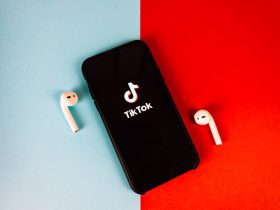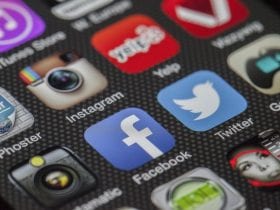In an example of branding, marketing, position and selling to millennials so alien to established concepts that, if it weren’t true, it would be put down as satire, U.S. drinks start-up Dirty Lemon has built a multi-million dollar business selling 6-packs of flavoured water for $65 – via text messaging. Dirty Lemon, a brand of parent company Iris Nova which was founded 4 years ago, both advertises its products through ads placed within messaging apps and takes orders via text message. And the approach has been so successful that Iris Nova was most recently valued at $60 million. Coca-cola invested $15 million in the company last December.
So how exactly does one go about building a multi-million brand based almost entirely on SMS? Especially when the product is less than 500 ml of flavoured water costing over $10 when purchased in a multi-pack. Zak Normandin, the 35-year old entrepreneur behind Dirty Lemon, recently explained to the Financial Times how he executed a masterclass in social media marketing.
The first step was of course to create a product that ‘should’ be expensive. Dirty Lemon’s range of 14 varieties of flavoured and supplemented water in ingredients from Himalayan pink salt and hibiscus to charcoal and turmeric. Of course, some also include ‘hydrolysed marine collagen’ to reduce wrinkles. Others have special ingredients included because of their qualities to help improve sleep, focus or energy levels.
Crucially, Dirty Lemon bottles themselves also stand out. They are brightly coloured and the bottle design was originally intended for shampoo. Dirty Lemon’s stand-out packaging meant that a relatively small number of bottles popping up in the right environments made an impression, provoking the question ‘what are those bottles I keep seeing’?
But there was still a key step between product creation and killer branding and getting enough Dirty Lemon bottles out there to begin to build a snowballing buzz. And that’s where social media marketing came in. That did require investment and Normandin committed $30,000 a day over a few weeks to advertising Dirty Lemon via Instagram. But the front-loaded strategy paid off. Quickly a niche audience of millennials, mostly female, began attending hip urban yoga studios in the U.S. accompanied by a noticeable Dirty Lemon bottle to hand. Interest in, and orders for, Dirty Lemon took off.
The brand is not available in shops, except for two ‘staffless’ stores the brand has now opened in New York. The stores have also been carefully considered as part of the Dirty Lemon branding and stand out as unique. They work on an ‘honour’ basis with buyers simply walking in, picking up their drinks and walking out. They are then supposed to text the company, telling it what has been taken and receiving a bill – which is also then paid by SMS.
Advertising on Instagram and Facebook has also stopped. To order bottles, buyers open the Dirty Lemon website and fill in their card details once. They then make orders via SMS and SMS only. And are prompted to do so by in-app ads featured in their messaging service of choice.
One result of the online-only business model Iris Nova has created for Dirty Lemon is a trove of data on customers. The advantage of that, explained succinctly by Normandin and clearly, based on its $15 million investment in his company, one that Coca-Cola agrees with, is:
“Imagine if Coca-Cola had a profile on every person that has purchased Diet Coke over the last 30 years. They would be able to create a new product to sell to the consumers that they’re now losing — the people that used to drink Diet Coke but aren’t drinking it any more.”
And that’s exactly what Iris Nova plans to do. Normandin talks of investing $100 million into developing new products such as teas to target his company’s social media and messenger-based consumers. And these products will be developed on a base of consumer information no number of expensively organised focus groups could hope to match.
Dirty Lemon is already a textbook example of social media marketing and commerce. And Normandin is convinced it’s just the beginning of an SMS-powered ecommerce empire:
“SMS is the most ubiquitous form of communication in the world. Right now we’re hyper-focused on beverages. But there’s a huge opportunity to really challenge the way products are getting to consumers.”










Leave a Reply